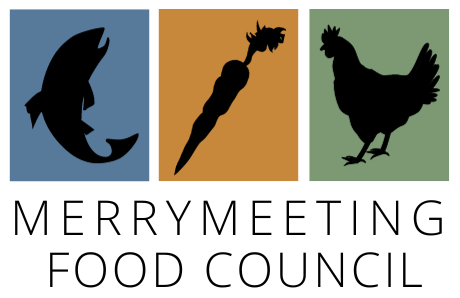From Maine Food Strategy
Liberation Farms. 2019.
Big systems issues -- prevalent hunger in communities or the loss of several hundred small Maine farms over the last five years, or the impacts of climate change on Maine fisheries --- don’t get solved by one group or one organization working alone. We all know the food system has many moving parts. When we talk about wanting a “better” or “stronger” food system, what does that look like in practical terms and what will it take to get there? How do we know if anyone is actually better off?
Results Based Accountability (RBA) is an evaluation process developed by Mark Friedman, founder of the Fiscal Policy Studies Institute, to help public and private sector agencies, communities, school districts, towns, states and nations be more accountable for the collective impact of their efforts
While no one group, state agency or business can “solve” our system issues, a single group can help feed more kids in a community or promote the farms in their county or helping businesses reduce energy costs and carbon emissions. RBA uses large population level indicators (such as the number of farms in Maine or state food insecurity rates in a county) to understand trends in a system. Combined with quantifiable impact data from programs or organizations working on specific issues, RBA can be used to help networks understand whether large-scale change is happening, and whether people and communities are better off as a result.
Maine has a large network working to strengthen and improve its food system. Maine Food Strategy is using its website to share trend data and case studies on programs and organizations making a measurable difference in improving the food system. Over time, the initiative hopes this information will help Maine better understand where trends in it’s food system are headed, where the combined results of work in communities are affecting large-scale change - and where they’re not.
Using “The Framework” a tool developed through a participatory planning process to identify broadly supported goals for improving Maine’s food system, Maine Food Strategy is highlighting programs such as Liberation Farms.
Liberation Farms is an example of a program supporting Goal V of the Framework: “Food insecure individuals and communities in Maine have access to resources that address their needs.” The program provides New American farmers access and resources to produce food for themselves, their families and their communities. Started in 2014 with 20 family farmers on three acres of leased land, Liberation Farms four years later had increased land access to 35 acres with more than 140 family farmers working the land. More details on the impact of Liberation Farms and RBA are at MaineFoodStrategy.org.
Community food councils have other successful examples of programs making positive changes in Maine. Food Councils and others are encouraged to add their achievements to case studies featured on mainefoodstrategy.org. Upload your own story directly or contact Maine Food Strategy at mfs@mainefoodstrategy.org.


